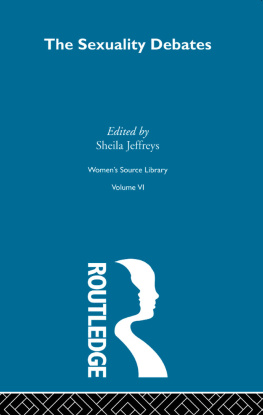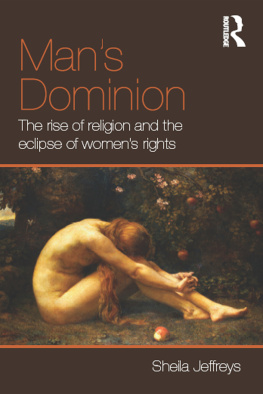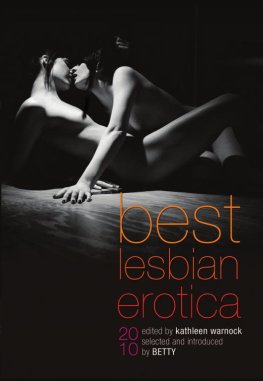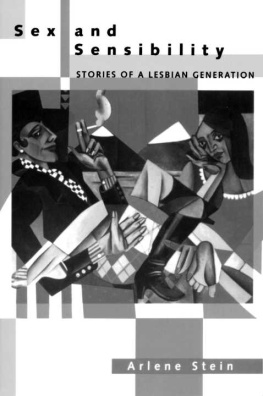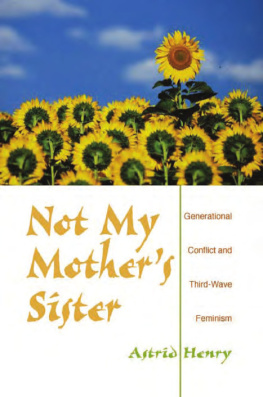The Lesbian Revolution
The Lesbian Revolution argues that lesbian feminists were a vital force in the Womens Liberation Movement (WLM). They did not just play a fundamental role in the important changes wrought by second wave feminism, but created a powerful revolution in lesbian theory, culture and practice. Yet this lesbian revolution is undocumented.
The book shows that lesbian feminists were founders of feminist institutions, such as resources for women survivors of mens violence, including refuges and rape crisis centres, and that they were central to campaigns against this violence. They created a feminist squatting movement, theatre groups, bands, art and poetry and conducted campaigns for lesbian rights. They also created a profound and challenging analysis of sexuality which has disappeared from the historical record. They analysed heterosexuality as a political institution, arguing that lesbianism was a political choice for feminists and, indeed, a form of resistance in itself. Using interviews with prominent lesbian feminists from the time of the WLM, and informed by the authors personal experience, this book aims to challenge the way the work and ideas of lesbian feminists have been eclipsed and to document the lesbian revolution.
The book will be of key interest to scholars and students of womens history, the history of feminism, the politics of sexuality, womens studies, gender studies, lesbian and gay studies, queer studies and cultural studies, as well as to the lay reader interested in the WLM and feminism more generally.
Sheila Jeffreys is a Professorial Fellow in the School of Social and Political Sciences at the University of Melbourne, Australia. In 1973, in the UK, she became involved in the Womens Liberation Movement and became a lesbian in 1977. She moved to Australia in 1991, where she became a Professor of Feminist Politics at the University of Melbourne, and has authored numerous books on the history and politics of sexuality, the global sex industry, lesbian feminism, harmful beauty practices, religion and womens rights and the politics of transgenderism. She moved back to the UK in 2015.
Routledge Studies in Radical History and Politics
Series editors: Thomas Linehan, Brunel University, and John Roberts, Brunel University
The series Routledge Studies in Radical History and Politics has two areas of interest. Firstly, this series aims to publish books which focus on the history of movements of the radical left. Movement of the radical left is here interpreted in its broadest sense as encompassing those past movements for radical change which operated in the mainstream political arena as with political parties, and past movements for change which operated more outside the mainstream as with millenarian movements, anarchist groups, utopian socialist communities, and trade unions. Secondly, this series aims to publish books which focus on more contemporary expressions of radical left-wing politics. Recent years have been witness to the emergence of a multitude of new radical movements adept at getting their voices in the public sphere. From those participating in the Arab Spring, the Occupy movement, community unionism, social media forums, independent media outlets, local voluntary organisations campaigning for progressive change, and so on, it seems to be the case that innovative networks of radicalism are being constructed in civil society that operate in different public forms.
The series very much welcomes titles with a British focus, but is not limited to any particular national context or region. The series will encourage scholars who contribute to this series to draw on perspectives and insights from other disciplines.
Titles include:
Migrant Britain
Histories and Historiographies: Essays in Honour of Colin Holmes
Edited by Jennifer Craig-Norton, Christhard Hoffmann and Tony Kushner
The Lesbian Revolution
Lesbian Feminism in the UK 19701990
Sheila Jeffreys
For more about this series, please visit: www.routledge.com/Routledge-Studies-in-Radical-History-and-Politics/book-series/RSRHP.
The Lesbian Revolution
Lesbian Feminism in the UK 19701990
Sheila Jeffreys

First published 2018
by Routledge
2 Park Square, Milton Park, Abingdon, Oxon OX14 4RN
and by Routledge
711 Third Avenue, New York, NY 10017
Routledge is an imprint of the Taylor & Francis Group, an informa business
2018 Sheila Jeffreys
The right of Sheila Jeffreys to be identified as author of this work has been asserted by her in accordance with sections 77 and 78 of the Copyright, Designs and Patents Act 1988.
All rights reserved. No part of this book may be reprinted or reproduced or utilised in any form or by any electronic, mechanical or other means, now known or hereafter invented, including photocopying and recording, or in any information storage or retrieval system, without permission in writing from the publishers.
Trademark notice: Product or corporate names may be trademarks or registered trademarks, and are used only for identification and explanation without intent to infringe.
British Library Cataloguing in Publication Data
A catalogue record for this book is available from the British Library
Library of Congress Cataloging in Publication Data
Names: Jeffreys, Sheila, author.
Title: The lesbian revolution : lesbian feminism in the UK, 19701990 / Sheila Jeffreys.
Description: Abingdon, Oxon ; New York, NY : Routledge, 2018. |
Series: Routledge studies in radical history and politics | Includes bibliographical references and index.
Identifiers: LCCN 2018012144 | ISBN 9781138096561 (hardback) | ISBN 9781138096578 (pbk.) | ISBN 9781315105253 (ebook)
Subjects: LCSH: LesbiansPolitical activityGreat BritainHistory20th century. | FeminismGreat BritainHistory20th century.
Classification: LCC HQ75.6.G7 J44 2019 | DDC 306.76/63dc23
LC record available at https://lccn.loc.gov/2018012144
ISBN: 978-1-138-09656-1 (hbk)
ISBN: 978-1-138-09657-8 (pbk)
ISBN: 978-1-315-10525-3 (ebk)
Typeset in Bembo
by Out of House Publishing
This book is dedicated to Ann Rowett. We met in 1987, when some elements of a lesbian feminist movement still existed, and have been together ever since. We saw the movement disappear and now we are seeing the beginnings of a rebirth. I am very grateful to Ann for her wise counsel on this volume, as well as all the love and strength she has given me in my writing and in my life.
Contents
Introduction
Lesbian feminism: hidden from history
Lynn Alderson
Lynn Alderson discovered the hidden world of lesbian clubs in the late 1960s before finding her true home in the Womens Liberation Movement a little later. She was a founder member of Sisterwrite Bookshop and very involved in the rich world of feminist publishing and newsletters, a member of Onlywomen Press, involved in Catcall and a founding member of the radical feminist magazine Trouble and Strife. A career in equalities work in local government followed. In 1997 she adopted her daughter after a two-year battle through the courts, which set the case law for lesbian and gay adoption in England and Wales. In 2010 she was part of an initiative to create a new network of 1970s WLM activists and is now part of two older womens groups, one of them lesbian. She is particularly keen to pass on consciousness-raising as a radical tool for both younger women and those who want to experience the last segment of their lives as part of a vibrant and permanently awkward sisterhood. She lives in Devon and, having been a cat woman for many years, is now besotted with her dogs.


